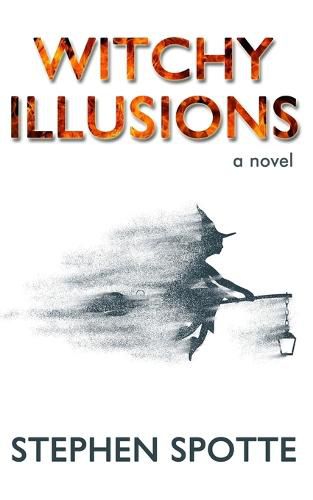Readings Newsletter
Become a Readings Member to make your shopping experience even easier.
Sign in or sign up for free!
You’re not far away from qualifying for FREE standard shipping within Australia
You’ve qualified for FREE standard shipping within Australia
The cart is loading…






She’s a comely, kick-ass witch who won’t be put to the stake easily! Witchy Illusions recounts the trial of Mademoiselle Ambrosine, a girl of fifteen accused of witchcraft in France in autumn 1515. Her lawyer is Barthelemy de Chassenee, a historical figure who became famous when in 1508 he defended the rats accused of eating the people’s grain stored at Autun’s granary and growing in nearby fields of the departement of Saone-et-Loire.
During Mademoiselle Ambrosine’s trial, justice plays out erratically, and nothing is ever clear. The proceeding turns increasingly opaque and the issues become more convoluted and muddled by legal precedent. Arguments about God’s will, mankind’s place in nature, and whether demons defecate and have erections obscure focus on the central issue of the defendant’s practice of witchcraft. These and similar metaphysical issues puzzle and invigorate everyone, the court and spectators alike, and it becomes evident that Inquisitor Institoris might have met his match in Mademoiselle Ambrosine.
$9.00 standard shipping within Australia
FREE standard shipping within Australia for orders over $100.00
Express & International shipping calculated at checkout
She’s a comely, kick-ass witch who won’t be put to the stake easily! Witchy Illusions recounts the trial of Mademoiselle Ambrosine, a girl of fifteen accused of witchcraft in France in autumn 1515. Her lawyer is Barthelemy de Chassenee, a historical figure who became famous when in 1508 he defended the rats accused of eating the people’s grain stored at Autun’s granary and growing in nearby fields of the departement of Saone-et-Loire.
During Mademoiselle Ambrosine’s trial, justice plays out erratically, and nothing is ever clear. The proceeding turns increasingly opaque and the issues become more convoluted and muddled by legal precedent. Arguments about God’s will, mankind’s place in nature, and whether demons defecate and have erections obscure focus on the central issue of the defendant’s practice of witchcraft. These and similar metaphysical issues puzzle and invigorate everyone, the court and spectators alike, and it becomes evident that Inquisitor Institoris might have met his match in Mademoiselle Ambrosine.